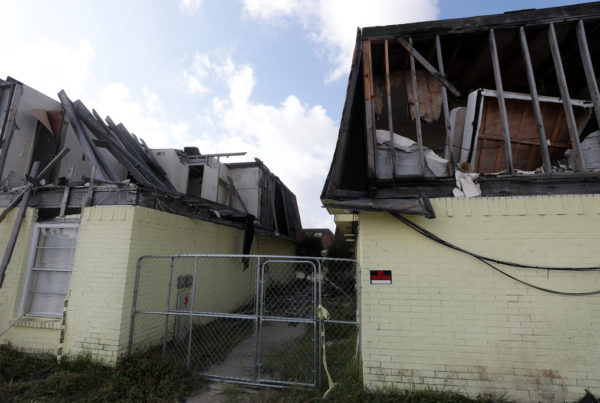President Donald Trump is likely to review the latest border deal by Thursday evening, but it’s not clear whether he’ll sign it. Both parties want to avoid a second partial government shutdown, and that’s partly because some people are still experiencing the effects of the first one.
Celia Cole of Feeding Texas says food is the first thing families skimp on when they have financial struggles.
“The reasons the food ‘ball’ gets dropped so quickly before others: it’s easier to cut back on food or go without or buy cheaper food than it is to say I’m only gonna pay part of my rent, because those decisions result in evictions. … Food is the most fungible [thing] in a family budget,” Cole says.
Cole says that for many families, some decisions made during the month of the shutdown are still weighing on them.
“In general, I think the people who came to us during the shutdown were struggling to make ends meet without a paycheck, and might have done things at the time like take out a loan or borrow from friends or skip a utility bill or cut back meds,” Cole says. “There are all sorts of coping mechanisms, even for those folks that ultimately got backpay; they are still going to be paying the price of those decisions that were forced upon them when they were going without pay.”
Arthur Trevino is one of those people. He works for a federal prison in Three Rivers.
“I hadn’t been that stressed at work in a long time, and I’ve been assaulted at work before and I’ve never been this stressed,” Trevino says.
He turned to the San Antonio Food Bank for support.
“I just care about my daughter. Like I told my wife, I’m not worried about me eating so much as long as she has what she needs. I just worry about my family, thats all I do,” Trevino says.
During the shutdown, Trevino looked for leniency anywhere he could.
“We started calling our creditors to see if we can get any relief. We promised to pay everybody back every single cent that they front[ed] us. ‘Can you please just give us an extra month?'” Trevino says he asked creditors. “And most of the creditors were working with us, except for our mortgage company.”
Now, almost three weeks since the longest government shutdown in U.S. history ended, Trevino says he finally made a payment on his mortgage. But with the possibility of another shutdown looming, Trevino says he’s planning to leave his government job soon.
“Me and my wife have made a decision that this is going to be my last year; I’m gonna retire in December because the retirees got their checks,” Trevino says. “I’ve been through how many shutdowns since ‘94? It’s been a lot but I don’t think it’s affected us like this, as it has in the past. … It’s very stressful on all of us.”
The U.S. House and Senate are expected to vote on the border-security compromise Thursday. President Trump has until midnight Friday to sign it in order avoid another partial government shutdown.















